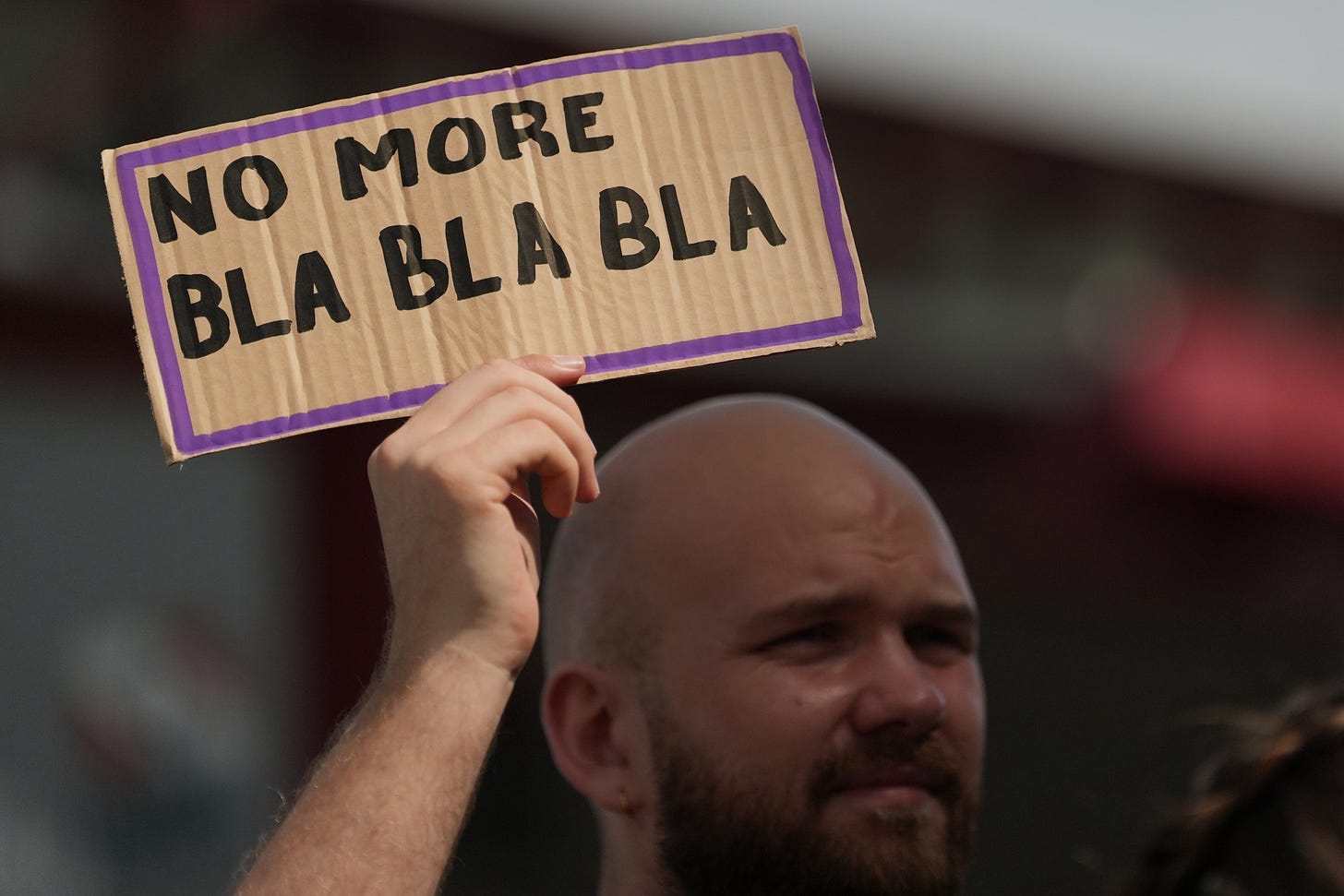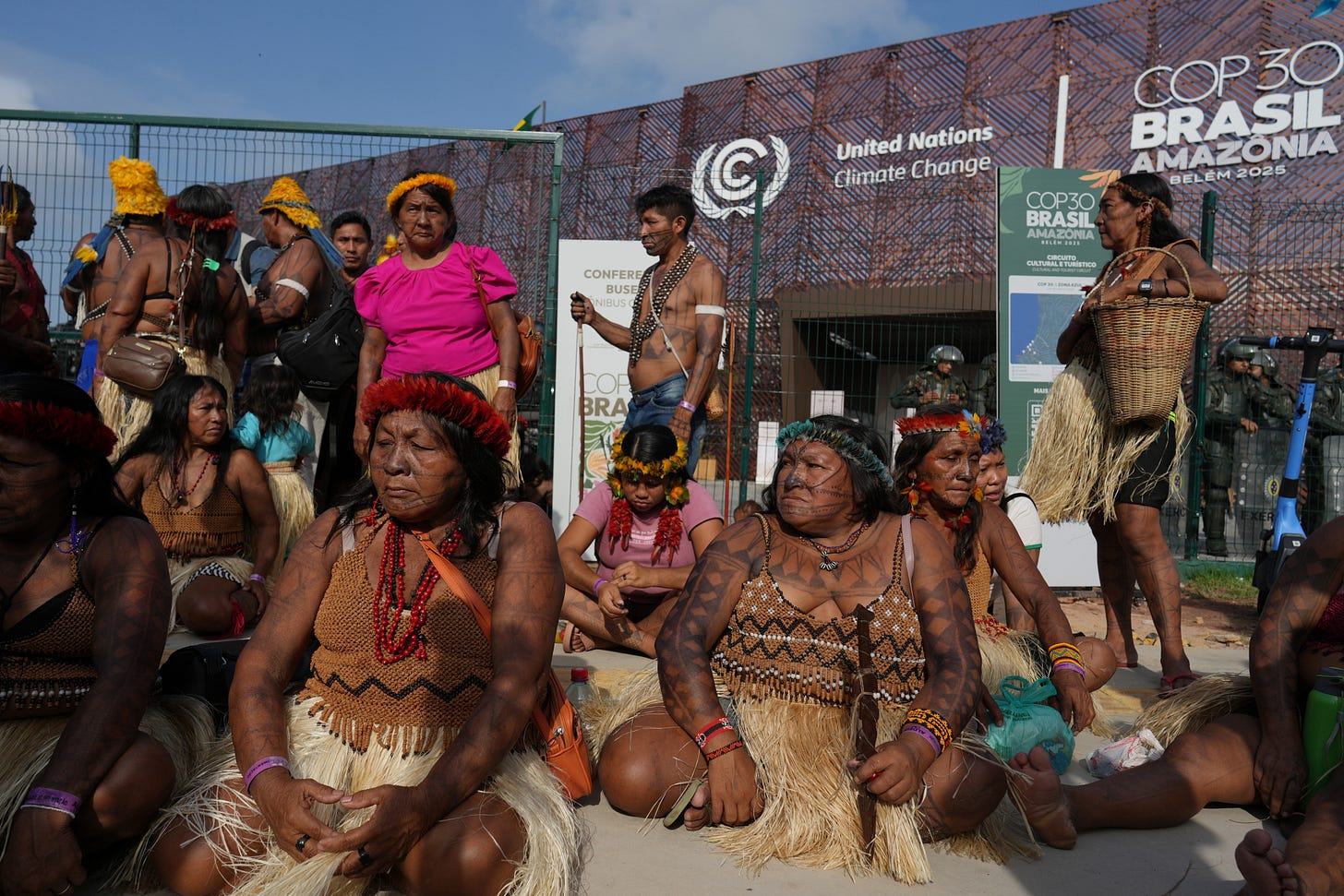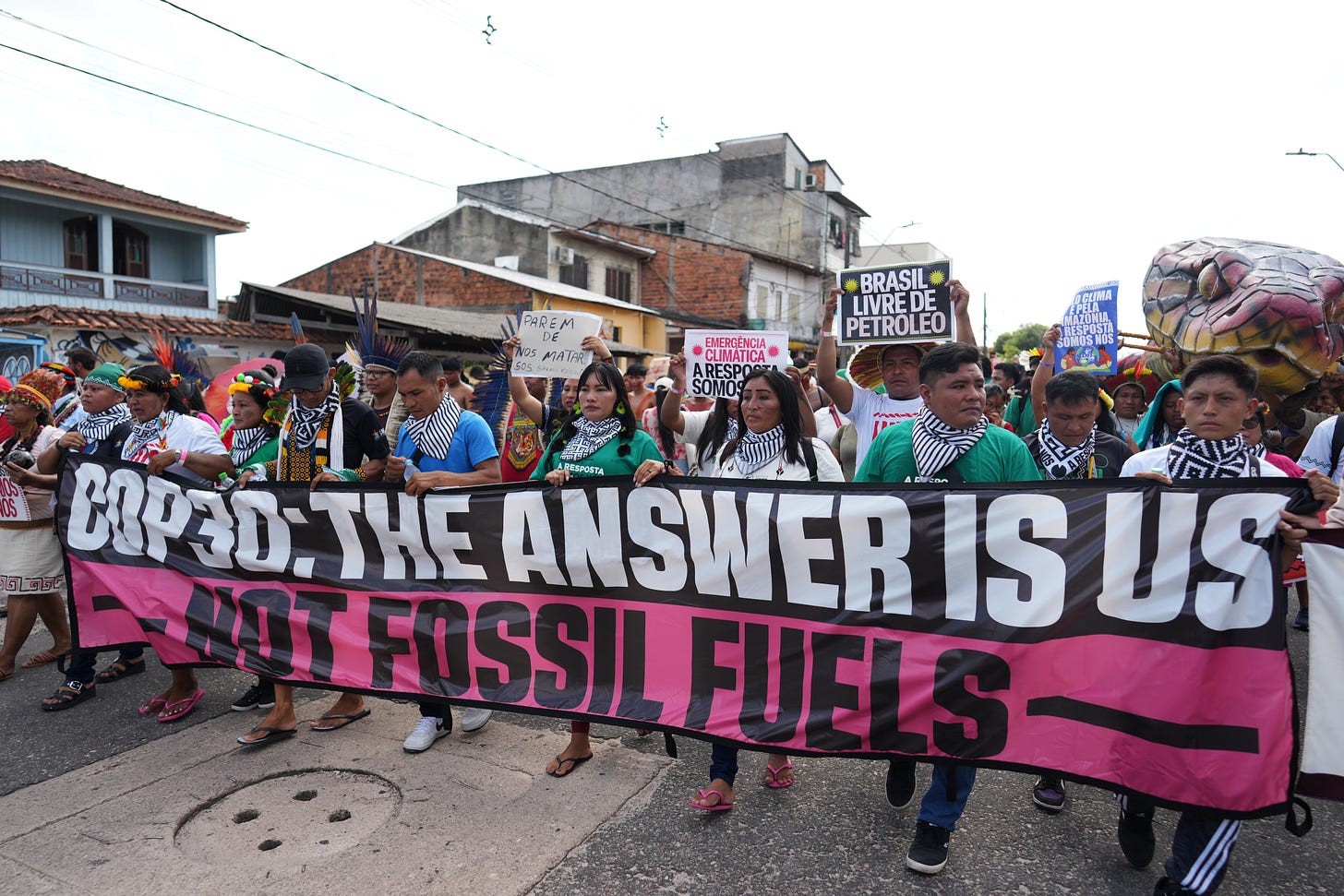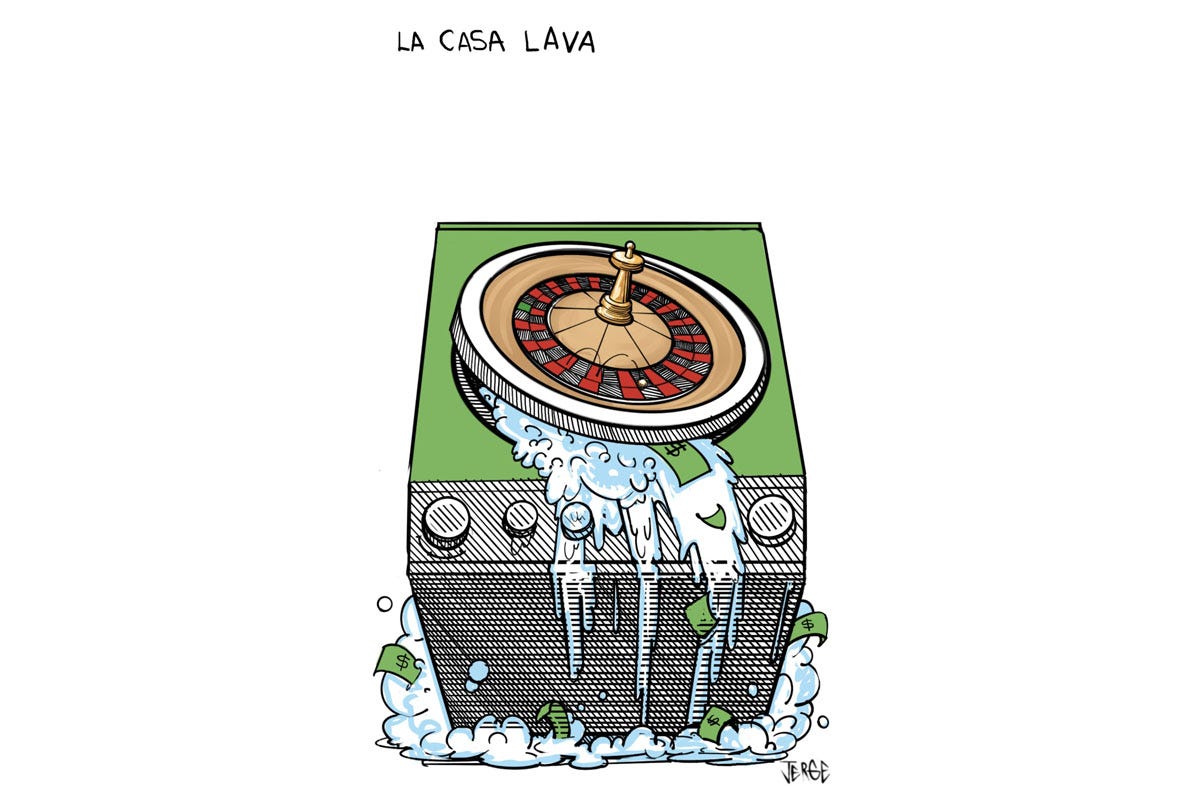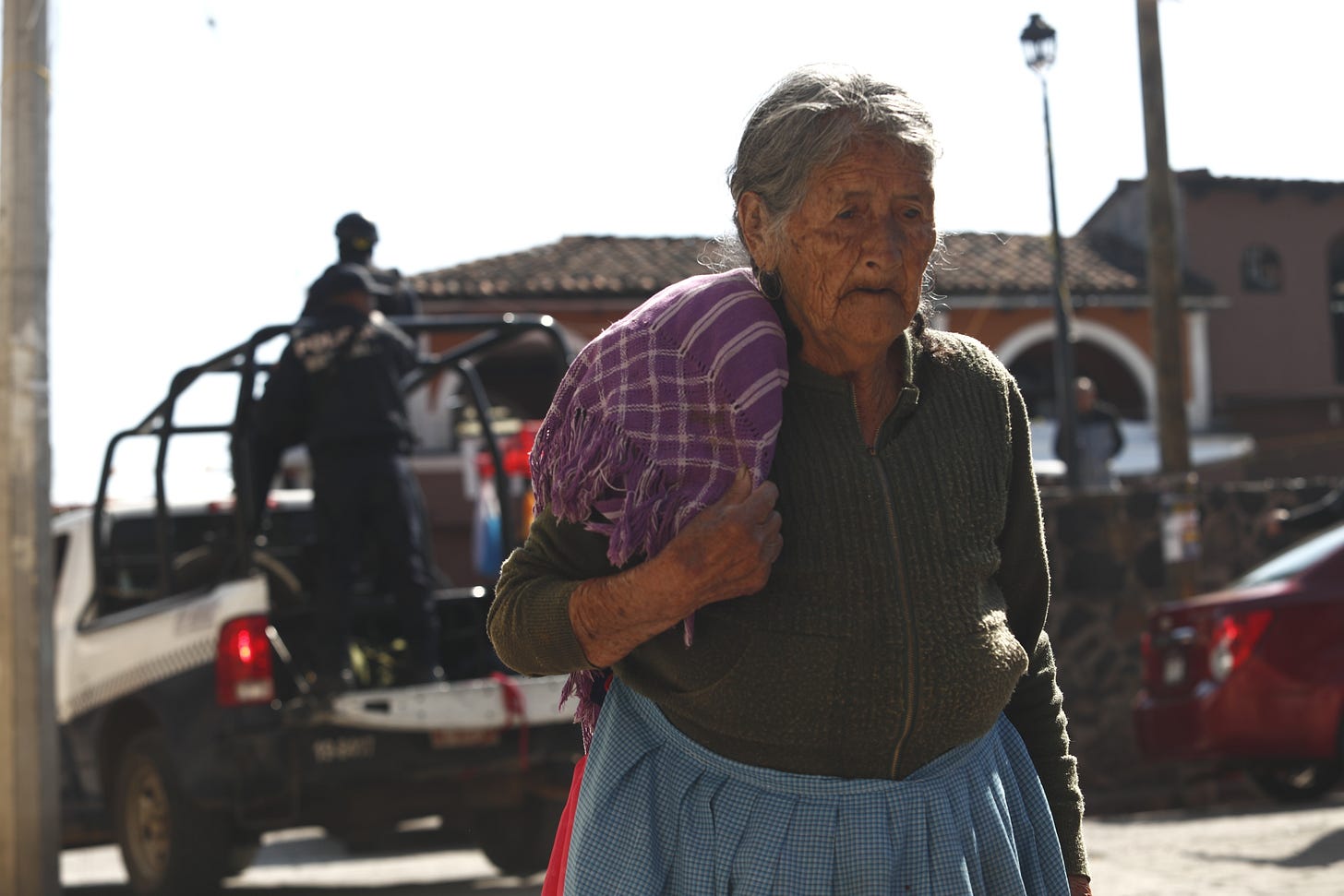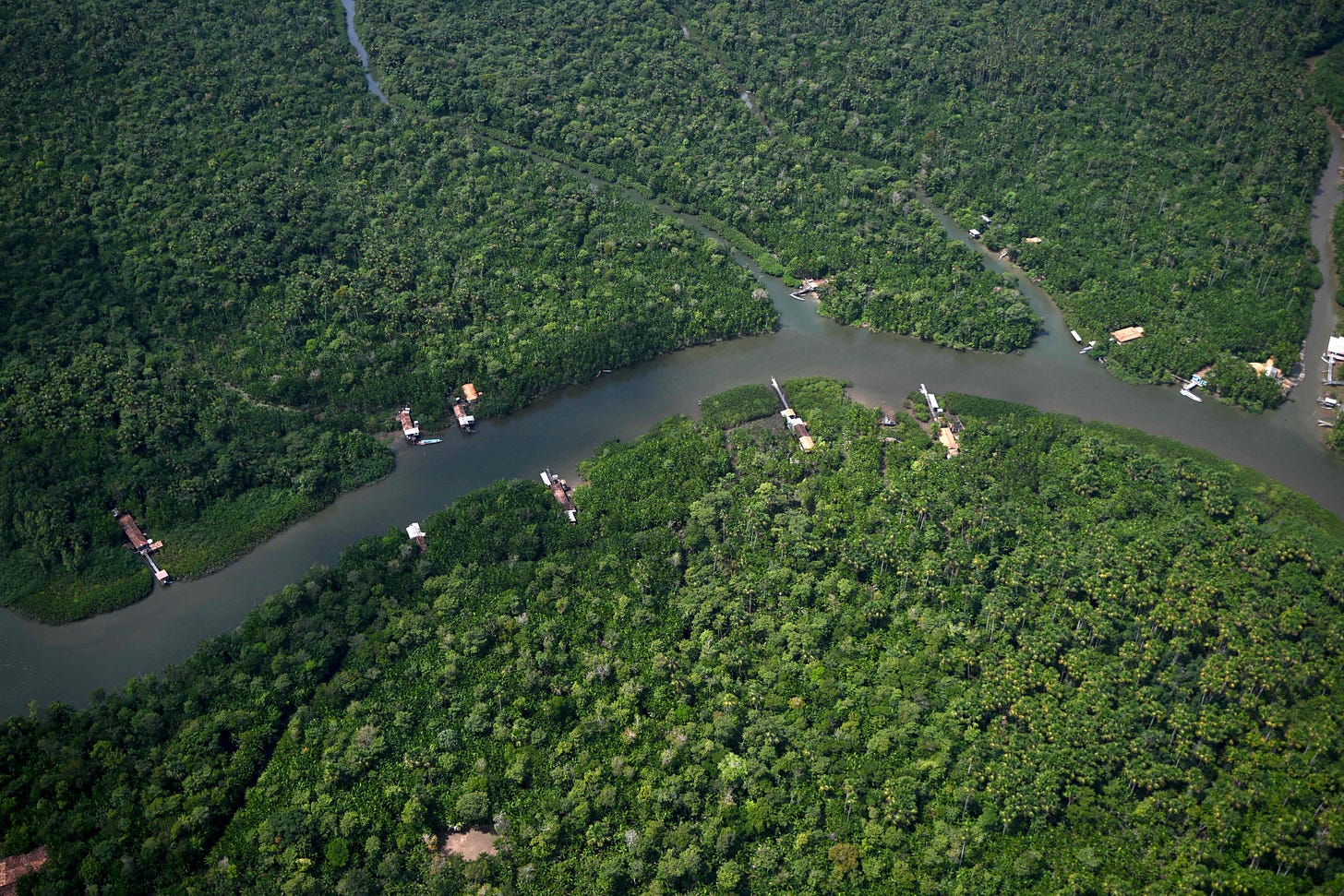Is the COP Process Still Relevant?
Also in this edition: Ramonet’s exclusive interview with Nicolás Maduro. Following the money in the fight against narcotrafficking. Trump: president of his own Murder Incorporated.
Lea La Jornada Internacional en español aquí.
Between Green Lesser-Evilism and Trumpist Denialism
The 30th World Conference on Climate Change (COP30) in Brazil offered an opportunity to assess both the achievements and the challenges facing Mexico and the rest of the planet in an era of climate denialism, petro-nationalism, and debates about the role of the state while the Trump administration is attempting to sabotage the environmental summit.
“Brazil is using the climate mega-event to try to position itself as the champion of green capitalism,” writes Miguel Urbán in La Jornada. “But it is also an event that exposes the limits and contradictions of Brazil’s green rhetoric as it seeks to lead the global environmental agenda while increasing oil production, expanding the fossil fuel frontier, and boosting agribusiness, factors that worsen the climate crisis and its extreme weather events.” In fact, one month before COP30, Petrobras, Brazil’s state-owned oil company, obtained a license to drill in the mouth of the Amazon basin.
Brazilian president Lula da Silva said that revenue from hydrocarbon production is important for developing countries in their fight against poverty and inequality. He proposed “earmarking part of the profits from oil exploration for the energy transition,” and, as a first step, announced the creation of a new fund aimed at “financing efforts to combat climate change and promote climate justice.”
In fact, the need for the industrialized world to provide financing to the poorer world in order to achieve Lula’s goals was one of the main issues at the previous COP. But the promise made by developed countries to directly provide $300 billion over 10 years has not been fulfilled. And now President Donald Trump has made it clear that the United States is discarding all the commitments made by his predecessors in the White House.
This year, Brazil’s main proposal is the Tropical Forests Forever Fund (TFFF), which dozens of governments, including Mexico, have joined. “Behind that grandiose name is an initiative to monetize the vital functions of forests and create a fund that sells bonds to private investors, from which part of the generated profits would be used for forest conservation,” writes Silvia Ribeiro in La Jornada. Ribeiro, like Urbán, disagrees with the proposal. “It’s yet another way to transfer funds from countries in the Global South to corporations and bankers in the Global North, letting them appear as saviors of southern forests while deforestation and climate change continue to grow,” she writes.
In the last decade, renewable energy capacity has tripled globally, and installation and operating costs have fallen. Even so, the energy model based on coal and hydrocarbons still dominates. Half of the 198 participating countries have met their commitment to publish national plans to address the climate crisis, but in most cases, including Mexico, they are not meeting their own targets.
Mexico committed to mitigating up to 400 million tons of carbon by 2035 and set a goal of achieving 45 percent clean-energy consumption. Meeting that target requires building roughly 40 GW of renewable energy. In the previous six-year administration, CFE built only 4.2 GW. But there is some optimism: “In 2025, we’re in better shape than in the previous administration; we are much closer in the sense that there is now recognition that the energy transition is necessary and that the electric system cannot grow on its own. We need private-sector participation. But we are still a bit far off in terms of defining the roles,” says Guillermo García Alcocer, former chair of the now-defunct Energy Regulatory Commission (CRE).
Another way to reach these goals is nuclear power, wrote Alonso Romero in La Jornada. “Nuclear energy is enormously important because it can perfectly replace traditional sources in every aspect, without the need for additional investments like batteries, inertia systems, etc., while maintaining the capacity for expansion of the electrical system, and above all, without subjecting demand to consumption limits due to weather variations.” He added: “Nuclear energy is the only one that guarantees reliable, low-cost, safe, and clean power.”
The decisions facing Mexico, Brazil, and the world are not easy. But if the governments won’t decide, nature will.
The Quote:
I think youngsters need to start thinking about what kind of world they are going to leave for me and Keith Richards.
-Willie Nelson (at 92 years old)
In Case You Missed It
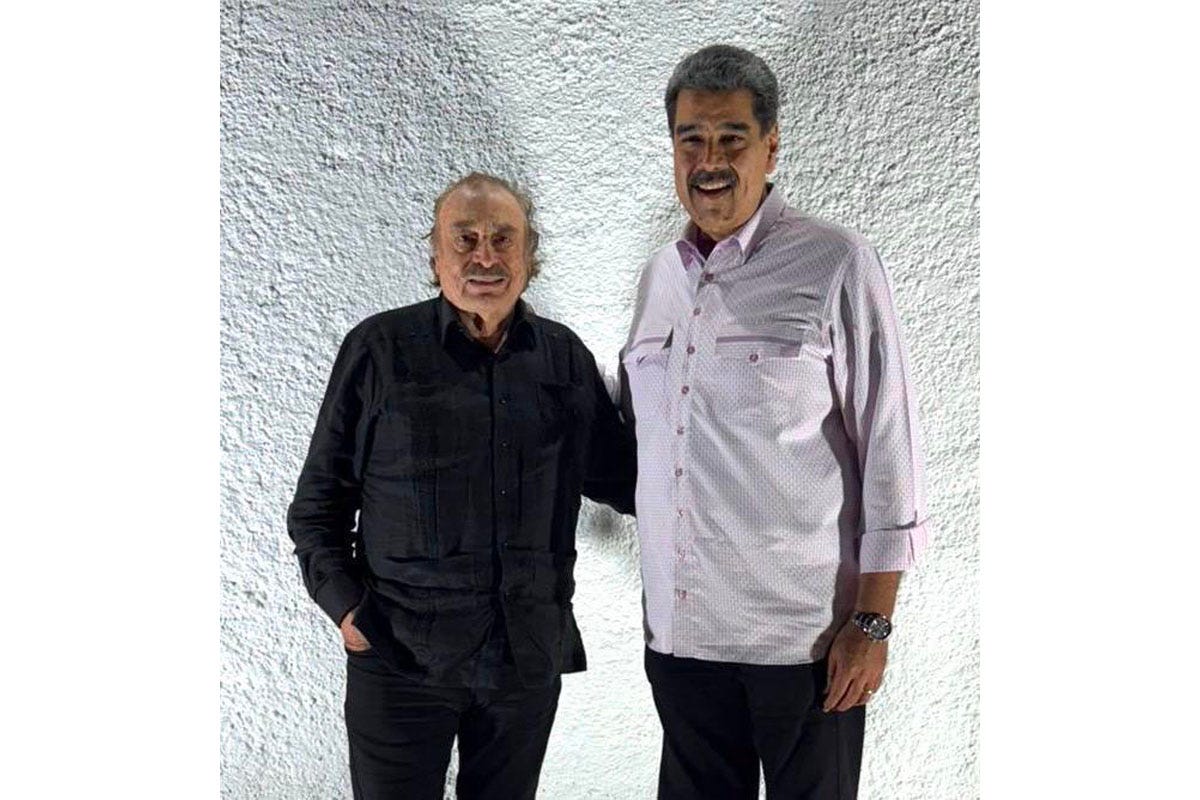
◻️ Nicolás Maduro: We are ready to dialogue and defend peace. In an exclusive interview with Ignacio Ramonet, the Venezuelan president discusses the current context of U.S aggression against Venezuela. “What this new U.S. administration wants, by pressuring and threatening Venezuela, is to send a political message of strength and dominance to all the states in the hemisphere,” he explains.
◻️ Weakening cartel finances. The Mexican government opened a new front in its fight against organized crime this month by shutting down 13 casinos involved in money laundering through shell companies, identity theft, and the improper use of banking data from ordinary people, mainly young people, students, workers, homemakers, and retirees. The business is estimated to have reached 25 billion pesos so far this year.
◻️ Donald Trump: President of his own Murder Incorporated. Historian Greg Grandin offers a concise history of the so-called U.S. war against drugs in the western hemisphere. “As with so many things related to Trump, it’s important to remember that he wouldn’t be able to do what he does if it weren’t for policies and institutions created by many of his predecessors. His horrors have a long backstory. In fact, Trump isn’t escalating the drug war; he’s escalating its escalation,” Grandin writes.
◻️ Michoacán, between violence and protest. The state of Michoacán is both an agricultural export powerhouse and one of the epicenters of criminal violence in Mexico. The murder of a mayor last month sparked nationwide protests amid perceptions of escalating violence across the country. The federal government announced the “Michoacán Plan” to address the violence.
◻️ Chile: Like El Cid, Pinochet wins elections after death. Chilean-Spanish sociologist, political analyst and essayist Marcos Roitman Rosenmann writes: “In Chile, the right won because the left failed to show up. Do not look elsewhere for what is the responsibility of progressive governments that have destroyed the values of justice, social equity, and the common good in favor of the general interest, a euphemism for defending the profits of plutocracies and their companies.” The left is now evaluating how to avoid its foretold defeat in the runoff scheduled for December 14. The prevailing vote in the first round, La Jornada wrote, “was not one of hope, but of fear: fear of crime, of foreigners, and even of neighboring countries.”
◻️ Street vendors, essential figures for 700 years. Street vendors have played a decisive role in the cultural, historical, and social life of Mexico City, according to Changarro, an interdisciplinary work of dance, music, and theater that tells the story of the pochtecas, pre-Hispanic merchants who served as teachers, historians, spies, and diplomats, and their “modern equivalents,” such as food sellers, informal vendors, parking space attendants, and garbage collectors. The production is part of the celebrations for the 700th anniversary of the founding of Mexico-Tenochtitlan.



